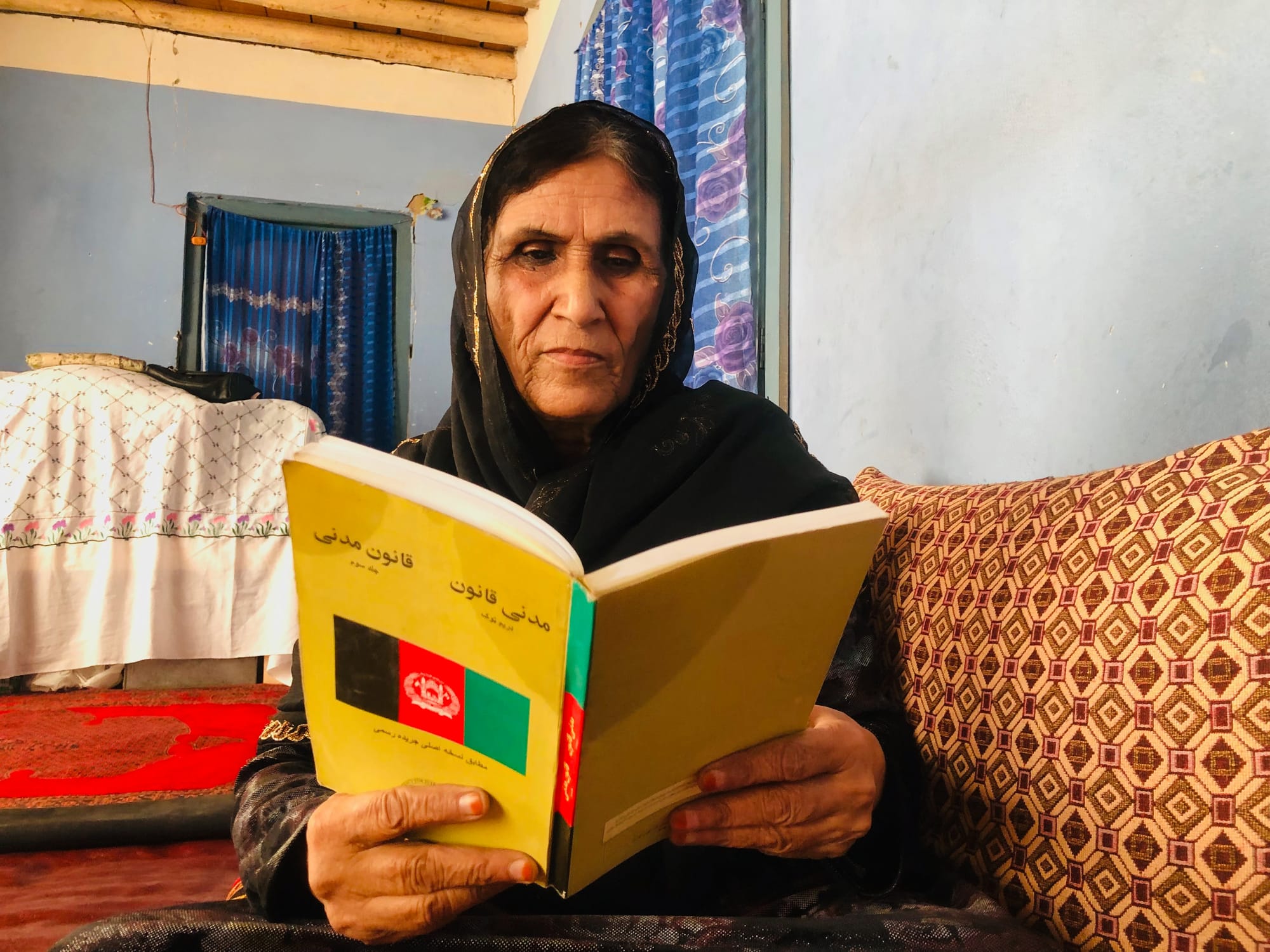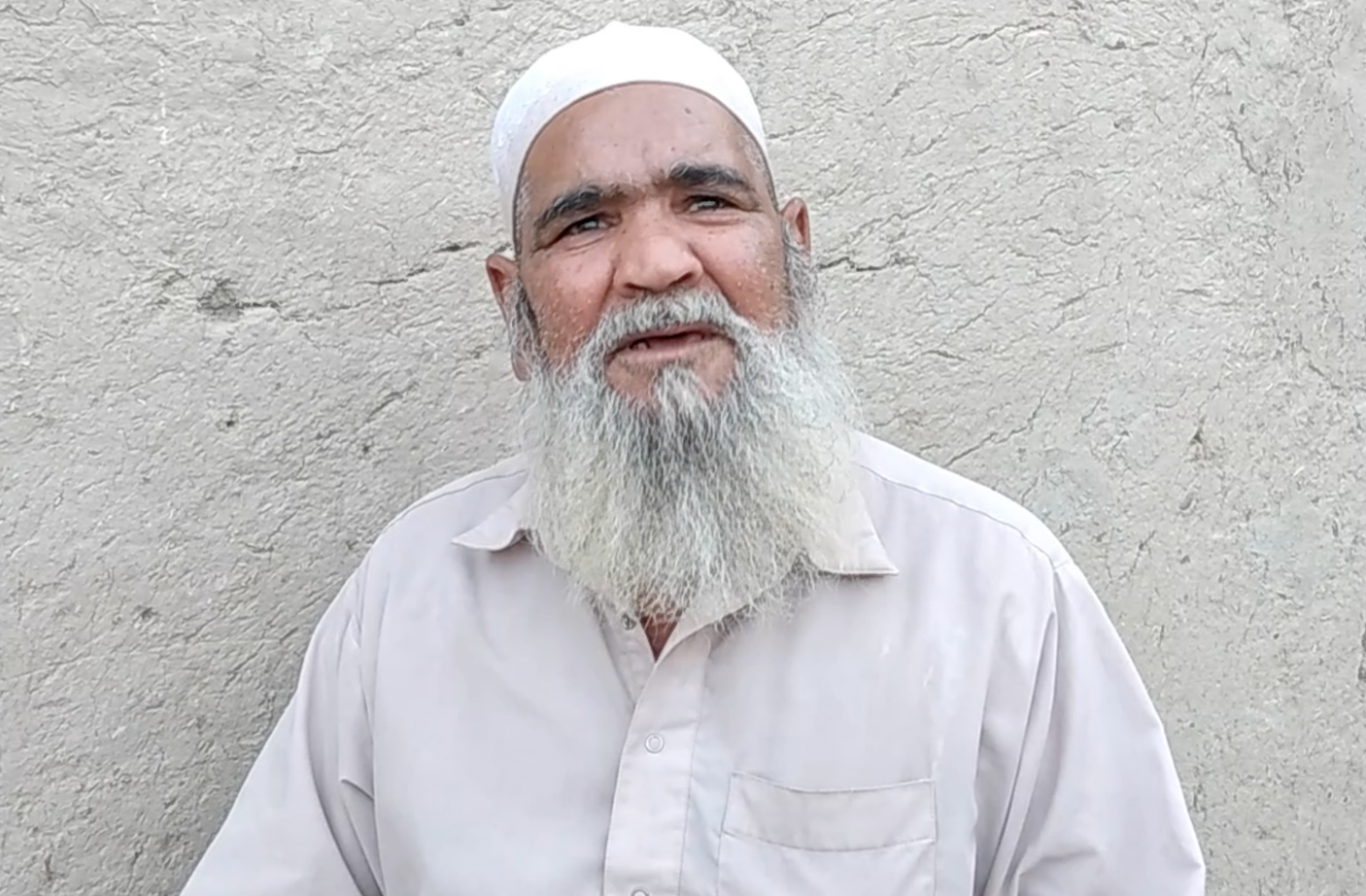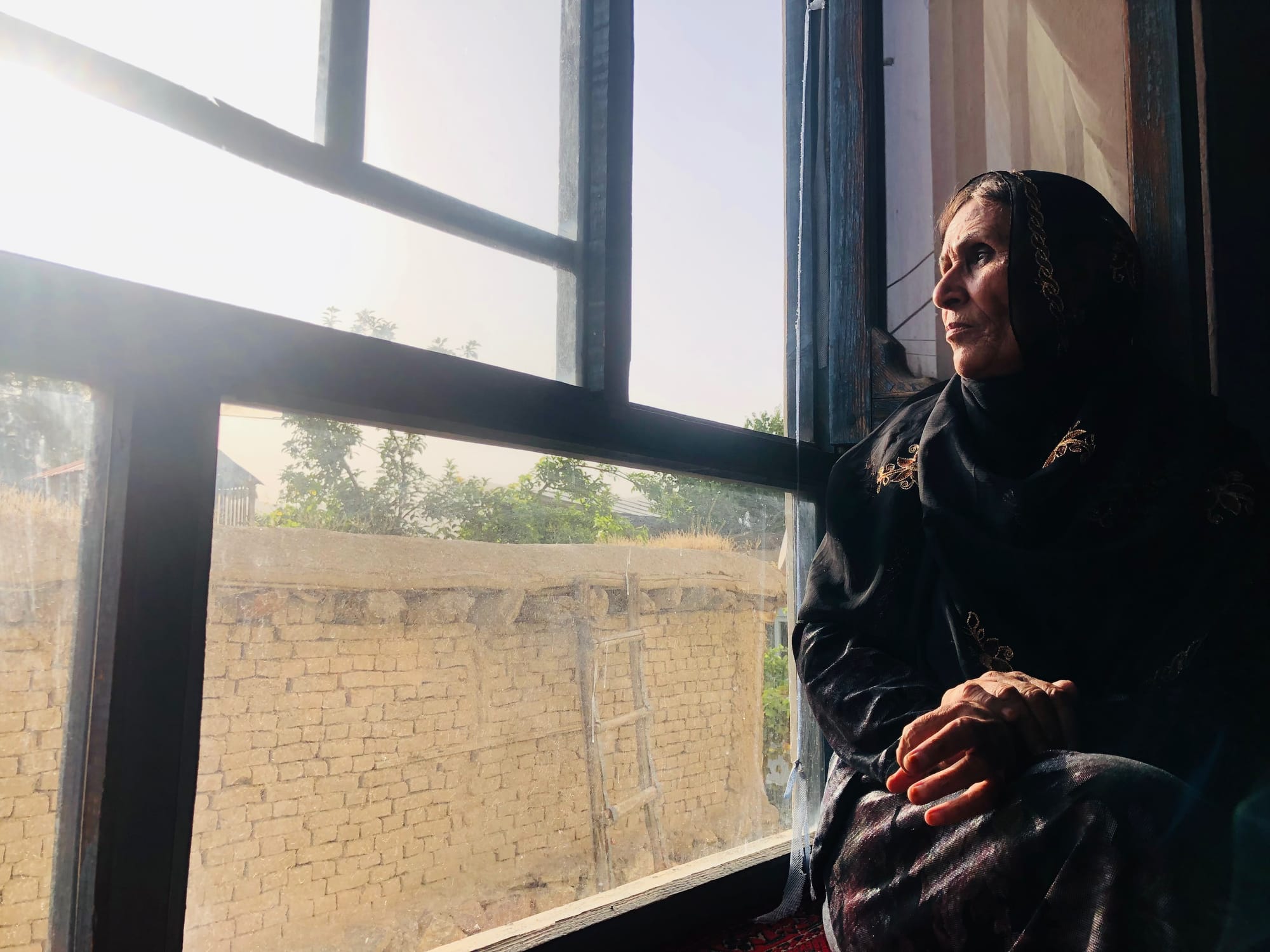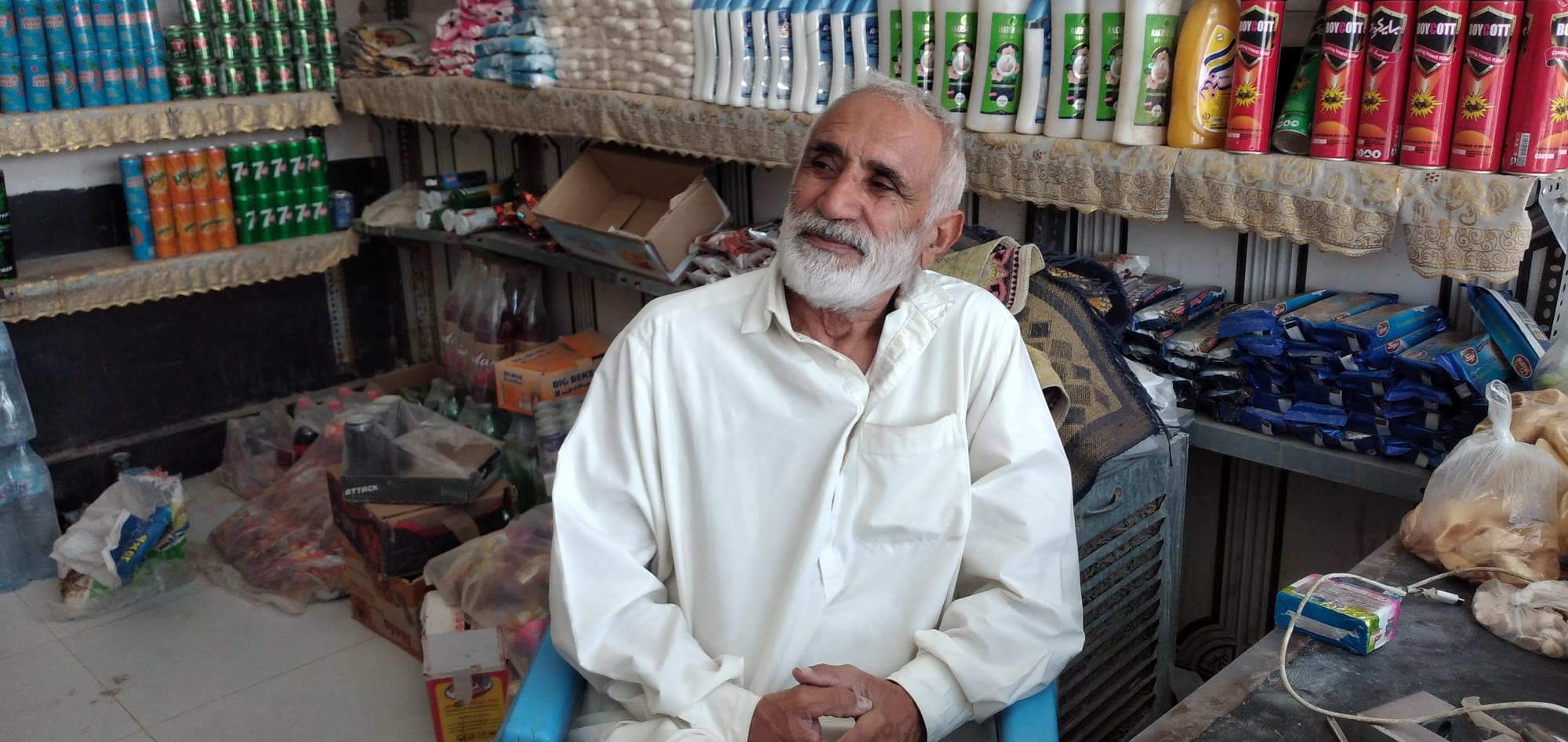Two Years Later, Pensioners Still Wait
Retired Afghans who served in various public sectors lament pension cutoffs following the Taliban takeover of Afghanistan. These pensions served as an economic relief for families in dire need of assistance.

Reporting by Samira Wafa, Shabana Farahmand, and Abdul Karim Azim
ZARANJ/HERAT/FAIZABAD, AFGHANISTAN — 60 year-old retired teacher Arefa Jalili’s livelihood relied heavily on her retirement benefits, the sole source of income for her. However, it has been three years since she received any of her much-needed pension.
Jalili sits by the window, her gaze fixed on the distant mountainous horizon of Faizabad, the capital of northeastern Afghanistan’s Badakhshan province, her hometown. Lost in her thoughts, she doesn’t notice me entering her home for a few moments. Ms. Jalili lives in a house with her brothers, her husband passed away years ago and the couple had no children.
Arefa graduated high school in 1977 and started teaching at the Kookcha High School in Faizabad a year later. She spent 40 years of her life as an educator under conditions where being a literate girl was a rarity.
Reflecting on those times, Ms. Jalili recalls the respect accorded to educated individuals within the community. Serving as a teacher for 18 years and as a headmaster for 22.
Her efforts educated countless students who went on to become doctors, engineers, and more, yet she struggles to make ends meet.
“I have been retired for five years. I have only received my retirement benefits twice,” Ms. Jalili told Alive in Afghanistan, adding that she hasn’t received any pension in the last three years while unemployed.
Ms. Jalili pleads with the Taliban government to swiftly disburse retirement funds to alleviate the burden on retirees.
AFGHANISTAN — Retired Afghans lament pension cutoffs by the Taliban since their takeover of Afghanistan in 2021. These pensions served as an economic relief for families in dire need of assistance. Videos by: Multiple reporters
As an educator who spent 4 decades educating Afghan children, Jalili is not only concerned about her pension, but the barriers preventing girls and women from accessing education and employment.
“I implore the Taliban, the Islamic Emirate of Afghanistan (the Taliban’s official name) to open the doors to schools and universities. Let women and girls study, work, and participate in society,” Ms. Jalili called on the Taliban.
According to her, expecting progress while “Half of society is sidelined is nothing short of delusional.”
Arefa is not the only one struggling with the loss of her pension. 85 year-old Sahib Khan, a resident of Zaranj, the capital of southwestern Nimroz province, is in the same boat. He served as a janitor at several schools for 13 years, retiring 15 years ago.
Sahib Khan scavenges through waste near a school to find wood, paper, and plastic he could use to burn to keep his home warm.
"What [Afghanistan’s previous government] used to provide was a blessing; it alleviated the pains of life and the needs of my family. What can I do? I'm old and feeble now, unable to work," Sahib Khan told Alive in Afghanistan.
Mr. Khan’s son, Hamidullah now works at a local government office as a janitor, earning 5,000 Afghanis ($63), barely enough to feed their family of 15.

According to Mr. Khan, he along with hundreds of other retirees have repeatedly approached the Taliban, only to be turned away empty-handed. Citing Taliban officials, Mr. Khan said the Taliban called receiving pension an “interest/riba”, therefore forbidden, instructing them to await a decree by Mullah Haibatullah Akhundzada, the Taliban’s supreme leader. Interest is forbidden in Islam.
Similarly, Abdul Rahim Hotak, a Nimroz resident, who served in the Afghan Army during the rule of the previous government, states that his retirement pension has not been paid since the Taliban takeover. Despite numerous attempts to claim his pension, he has yet to receive a clear response.
Hotak, the sole breadwinner for his family of five, relied on his pension as the only source of income following retirement. However, post-Taliban rule and the non-receipt of this entitlement have made life difficult for him and his family.
Lamenting the cost of household goods and the lack of pension, Mr. Hotak said, “The prices for all food and non-food items are staggering. With no income and no retirement benefits in our old age, how can I feed my family?”
“Life is hell for us; we sometimes have to go to sleep hungry," he said.
Citing Taliban officials, Mr. Hotak said that the Taliban initially justified not paying their pensions as “pension is interest”, and “They won’t pay interest!” while taxing government staff on their monthly salaries continue. Mr. Hotak adds that the Taliban have urged pensioners to be patient and await a decree by the group’s supreme leader.

Pensioner Sharif Khan Sharifi who retired six years ago, told Alive in Afghanistan that he received his pension regularly during the rule of the previous government, but his pension stopped following the Taliban takeover.
“We went to the Taliban demanding our pension several times, we protested, and [the Taliban] told us that they had drafted and submitted proposals to the cabinet, asking us to wait. We have been waiting for two years, but the draft hasn’t been signed. How do we eat?” Mr. Sharifi asked.
Mr. Sharifi used to receive 39,000 Afghanis ($490) in annual pension, but he is now stranded in a world of uncertainty, unsure of what to do.
“They left us wandering, each one of us served between 40 to 50 years, only to be left begging for money, our lawful rights denied,” Mr. Sharifi said.
Mohammad Nader, a 71-year-old retiree who served as a teacher, headmaster, and director in the Department of Education of neighboring Farah and Nimroz for 40 years, is also in a dire economic situation. Mr. Nader has been supporting his family of 12 by filling out forms for other people over the past six years. Nader is paid a small amount for each form, earning a maximum of 150 Afghanis ($2.07) a day.
“I write 10 to 15 forms daily. My income varies depending on people’s generosity; some pay 50 Afghanis ($0.63) for each form, some 20 Afghanis ($0.25),” Nader said.
According to Nader, it’s been three years since he received any pension.
“I am an old, weak man. On the days when I am sick, and can’t go to work, my family doesn’t have anything to eat,” Nader told Alive in Afghanistan. Nader calls on the Taliban to pay the pensions.

Abdul Ghafoor Mohammadi, a former employee of the Nimroz Directorate of Agriculture, retired six years ago. For the first four years, Mr. Mohammadi received an annual pension of 78,000 Afghanis ($982), but his benefits have been cut off in the past two years.
“Retirement benefits are our legitimate right, and any government in power should pay the retirement benefits of officers who have served their entire lives. I served the government for forty years, and today the government doesn't give me my rights," Mr. Mohammadi said. Mr. Mohammadi works as a sales assistant and cleaner at a grocery store.
Homaira Rokhshani, a civil activist in Nimroz is concerned about the difficult economic situation retired Afghans endure, “Life in Afghanistan has become very difficult for all classes, but low-income families, including the retired, struggle to find enough to eat.”
Mawlawi Mohammad Omar Zubari, the head of Nimroz’s Directorate of Labor and Social Affairs, the agency responsible for retirement pensions, said pensions for government staff serving in the previous government have been cut off by the central government in capital Kabul, and pensioners should take the issue up with the central government.
“No policy or guideline has been provided to us in this regard,” Mawlawi Zubari told Alive in Afghanistan.
The same situation persists in western Herat province where those retired report a two-year gap in getting paid their pensions.
One pensioner speaking to Alive in Afghanistan on the condition of anonymity due to safety risk, said pensioners have repeatedly asked the Taliban government for a solution, an issue that is yet to be resolved. According to the pensioner, those retired in Herat have been told the same thing, to await a decree by the Taliban’s supreme leader.
“This money was taken from our pockets, getting our pension is our right. So why is it not given to us?” The pensioner asked.
The pensioner demands that the Taliban pay their pensions, which will help them relieve some of the economic stress.
